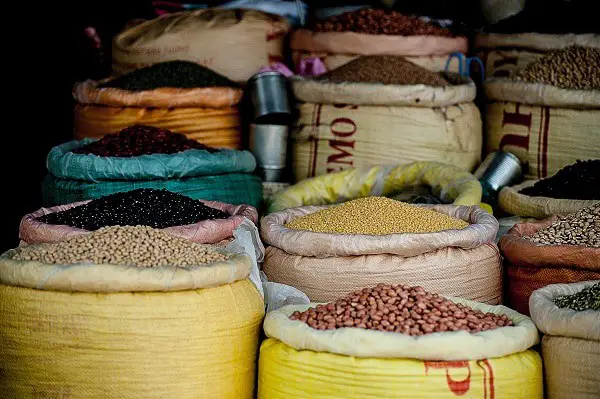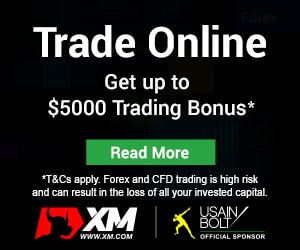Those who dream of becoming investors can regularly find questions revolving around their minds. Growing Investors also ask themselves the same questions as they think of expanding on their investment or moving to a different field of investment.

Questions to ask a commodity trader are the questions that determine the kind of investment, risks to be taken, challenges encountered, costs to be incurred, time taken to accomplish a specific task, efforts required, and profit margins, among others that we are yet to look at.
These questions are essential for somebody who plans to venture into any commodity trading activity, mining, agriculture, currency, energy, or metals. To obtain precise information about the activity, consulting an expert is an essential move.
Some people may offer misleading information that they are not sure of and may risk the investor’s capital and harm the entire market activities.
Commodity trading advisors are the right people to consult when investing in a particular commodity. Commodity trading advisors are heading managed future programs that involve a pool of investors who target better and controllable measures to maximize profit and proper utilization of investors’ capital. These advisors must be registered under the Commodity Futures Trading Commission, and all must have passed series three exams.
The benefit that an investor may earn is getting a well-experienced advisor who can help in propelling the future growth of the business activities. Personal advisors try to understand the individual activity and every operation affecting its growth. An individual investor should deal with the advisors in person to get a deeper feel for the business operations since most advisors have dealt with commodity trade operations for a long time.
Asking these questions requires composed, inquisitive language to make the advisor or senior trader deliver detailed information about the activity. Some of the general questions may lead to apparent answers such as YES or NO, which eventually translates to the answers that you already have.
Commodity trading is a complex field that requires an understanding of various markets, economics, and geopolitics. Suppose you’re preparing for a job interview in this industry. In that case, it’s essential to be ready to answer a range of questions that test your technical knowledge, analytical abilities, and understanding of the market. Here are ten top commodity trading interview questions and their comprehensive answers.
Top 10 Commodity Trading Interview Questions!
1. Question: Explain what a commodity is and how commodities are classified.
Answer: A commodity is an essential good used in commerce that is interchangeable with other goods of the same type. Commodities are typically standardized products used as a base to determine the value of a specific good. They are classified into two main categories:
- Hard Commodities: These are mined or extracted, such as gold, oil, and metals.
- Soft Commodities: These are agricultural products or livestock, like corn, wheat, and cattle.
2. Question: What factors influence the price of commodities?
Answer: Several factors can influence commodity prices, including:
- Supply and Demand: If demand increases or supply decreases, prices will likely go up and vice versa.
- Geopolitical Events: Wars, sanctions, or political unrest can disrupt supply chains, affecting prices.
- Weather Patterns: Droughts, floods, and other weather anomalies can affect the production of agricultural commodities.
- Currency Strength: A stronger US dollar can make commodities more expensive for other countries, potentially decreasing demand.
- Global Economic Conditions: Economic growth can spur increased demand for commodities.
- Speculation: Traders’ perceptions and predictions about future events can drive prices up or down.
3. Question: What is the difference between spot and future prices in commodity trading?
Answer: The spot price is the current market price at which a commodity can be bought or sold for immediate delivery and settlement. Conversely, the future price refers to the predetermined price at which a commodity will be delivered on a future date. Futures contracts are used to hedge against price fluctuations or to speculate on price movements.
4. Question: How can traders hedge against the risks associated with commodity trading?
Answer: Traders can hedge against risks using various instruments:
- Futures Contracts: By locking in a price for future delivery, traders can protect themselves from price volatility.
- Options on Futures: Gives traders the right, but not the obligation, to buy or sell a futures contract at a specific price.
- Swap Agreements: Contracts in which two parties exchange cash flows or financial instruments.
- Diversification: By investing in various commodities or other assets, traders can reduce the risk of any single investment.
5. Question: Why do contango and backwardation occur in the futures market?
Answer: Contango occurs when the futures prices exceed the expected future spot prices. It often results from costs associated with storage or the opportunity costs of holding a commodity.
Backwardation happens when futures prices are lower than the expected future spot prices. It can arise from a shortage or an expectation of falling prices in the future.
6. Question: How do geopolitical events impact oil prices?
Answer: Geopolitical events can have a significant influence on oil prices. Wars, political unrest, and sanctions can disrupt supply chains or create uncertainty about future supply. For example, tensions or conflicts in the Middle East, a significant oil-producing region, can lead to spikes in oil prices due to concerns over supply disruptions.
7. Question: What role does the Organization of the Petroleum Exporting Countries (OPEC) play in the oil market?
Answer: OPEC is a consortium of 13 countries that produce a significant portion of the world’s oil. The organization aims to coordinate and unify petroleum policies among its members to ensure stable oil prices. By regulating oil production levels among member countries, OPEC can influence global oil supply and, consequently, oil prices.
8. Question: Explain the difference between base metals and precious metals.
Answer: Base metals are common metals that corrode or oxidize relatively quickly when exposed to air or moisture. Examples include copper, zinc, and nickel. They are primarily used for commercial and industrial purposes.
Precious metals like gold, silver, and platinum are rare, naturally occurring metallic elements. They are resistant to corrosion, have unique luster, and are often used for jewelry, investments, and as a hedge against inflation.
9. Question: How do central bank policies impact commodity prices?
Answer: Central banks influence commodity prices by controlling interest rates and monetary policies. For instance:
- Low-Interest Rates: This can increase borrowing and spending, potentially driving up commodity demand.
- High-Interest Rates: This can strengthen a country’s currency, making commodities more expensive for international buyers and potentially reducing demand.
- Quantitative Easing: This can lead to inflationary pressures, prompting investors to seek commodities as a hedge against inflation.
10. Question: Why might a company involved in commodity production use derivatives?
Answer: Companies involved in commodity production use derivatives primarily for hedging purposes. By locking in prices through futures or options contracts, these companies can protect themselves from adverse price movements. This provides them with more predictable revenue streams and shields them from the volatile nature of commodity markets.
11. Question: What is the role of the Commodity Futures Trading Commission (CFTC)?
Answer: The Commodity Futures Trading Commission (CFTC) is a U.S. federal agency responsible for regulating the commodity futures and options markets. Its primary mission is to promote transparent, competitive, and financially sound markets while protecting users from fraud, manipulation, and abusive practices.
12. Question: How do storage costs affect the pricing of commodities in the futures market?
Answer: Storage costs are a significant factor in the futures market, especially for physical commodities. When storage costs are high, they can push the futures prices above the expected future spot prices, leading to contango. Conversely, if storage costs are minimal or negative, it may lead to backwardation.
13. Question: How does technological advancement impact commodity markets?
Answer: Technological advancements can have several effects on commodity markets:
- Increase in Supply: Improved extraction or farming techniques can boost production.
- Change in Demand: As renewable energy technology advances, the demand for coal or oil might decrease.
- Efficient Trading: Digital platforms and algorithms can make trading faster and more accurate.
- Better Information Dissemination: Technology facilitates quicker dissemination of market-related information, leading to more informed decision-making by traders.
14. Question: What are the major global commodity exchanges?
Answer: Some of the major global commodity exchanges include:
- Chicago Mercantile Exchange (CME) – USA
- New York Mercantile Exchange (NYMEX) – USA
- London Metal Exchange (LME) – UK
- Shanghai Futures Exchange (SHFE) – China
- Intercontinental Exchange (ICE) – USA
15. Question: What’s the significance of the ‘mark-to-market’ process in futures trading?
Answer: Mark-to-market is an accounting method that involves adjusting the value of a futures contract at the end of each trading day to reflect its current market value. This process ensures that profits and losses from the day’s trading are credited to or debited from a trader’s account daily. It helps maintain transparency and ensures participants have enough margin in their accounts to cover potential losses.
16. Question: How can macroeconomic indicators impact commodity prices?
Answer: Macroeconomic indicators such as GDP growth, interest rates, inflation rates, and employment data can influence commodity prices. For instance, strong economic growth might increase commodity demand, increasing prices. On the other hand, high inflation can make commodities more attractive as a hedge, driving up demand and prices.
17. Question: Why is liquidity necessary in commodity trading?
Answer: Liquidity refers to the ease with which an asset or security can be quickly bought or sold without affecting its price. High liquidity ensures:
- Efficient Price Discovery: Prices reflect actual market sentiments.
- Lower Transaction Costs: Tighter bid-ask spreads lead to reduced costs.
- Quick Entry and Exit: Traders can easily open or close positions without significant delays or price impacts.
18. Question: What is the role of speculators in the commodity market?
Answer: Speculators are market participants who buy and sell commodities with the primary aim of profiting from price fluctuations. They don’t have a vested interest in owning the actual commodity. Their role is crucial because:
- They provide liquidity to the market.
- They help price discovery by expressing their views on future price movements through their trades.
- While sometimes criticized for exacerbating price volatility, they absorb the risk hedgers seek to offload.
19. Question: How do seasonality factors influence commodity prices?
Answer: Seasonality plays a significant role, especially in agricultural commodities. Factors include:
- Planting and Harvest Seasons: The abundance or scarcity during these times can impact prices.
- Weather Patterns: Events like monsoons or frost can affect crop yields, influencing prices.
- Consumer Demand: Certain commodities might see increased demand during specific seasons or festivals, pushing prices up.
In conclusion, commodity trading is a multifaceted domain with a blend of economics, geopolitics, and market dynamics. Being well-prepared for these questions and others related to your specific role will give you a competitive edge in the interview process.






















